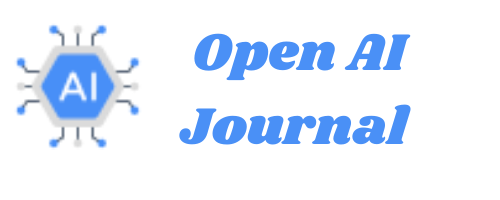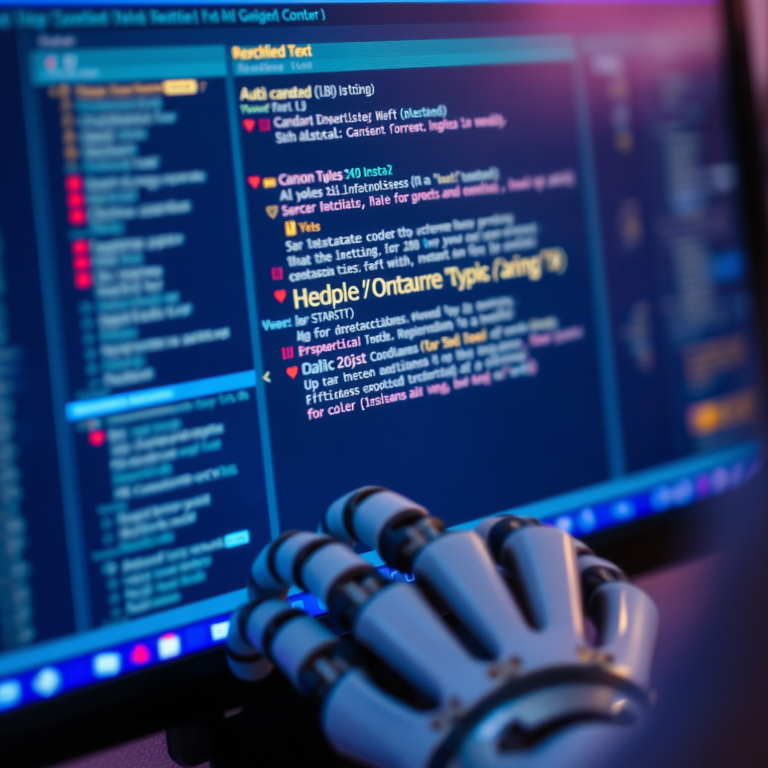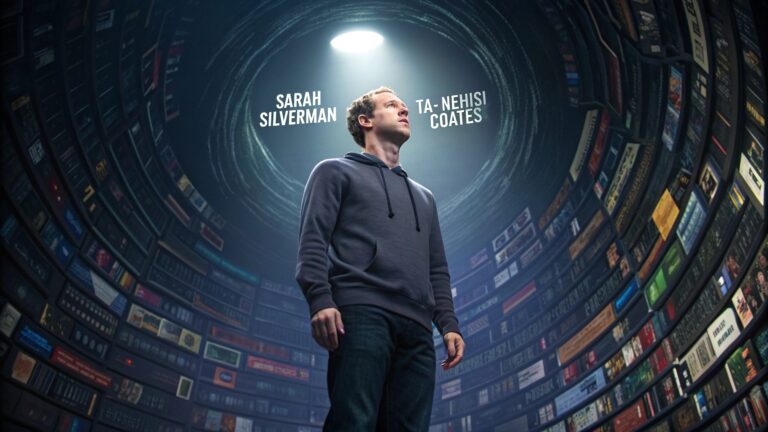Should AI Companies Pay for Content? The Ethical Debate on Scraping and Licensing

Table of Contents
In recent years, the emergence of powerful artificial intelligence (AI) models has reshaped industries, innovating everything from customer service chatbots to cutting-edge tools for medical diagnostics. Behind these advances lies a crucial question: Should AI companies pay for the content they scrape from the internet to train their models? This issue has sparked heated debates among content creators, tech companies, and policymakers. In this article, I’ll dive into the ethical implications, explore the current landscape, and discuss why AI companies should pay for content—while examining the complex nuances involved.
The Growing Use of Content in AI Training
AI models like OpenAI’s GPT-3, Google’s BERT, and other large language models rely on vast datasets to function. These models learn by processing and analyzing enormous quantities of text, which they use to generate predictions, responses, and even creative content. For example, GPT-3 was trained on an immense dataset that included more than 570GB of text scraped from a wide variety of sources: websites, books, articles, social media, and more. While some of the content used in training is publicly available, much of it belongs to creators, publishers, and companies who may never have agreed to allow their work to be used in this way.
It’s not hard to see the appeal for AI companies: the more diverse and comprehensive the dataset, the better the AI can function. But this raises a fundamental question: is it ethical for these companies to scrape content from the web without compensating the creators whose work is being used?
In the world of digital content, AI companies are among the biggest consumers of data. This has led to a growing sense of injustice among content creators—especially journalists, bloggers, and other digital publishers—who argue that AI companies are benefiting from their intellectual property without sharing the wealth.
The Ethical Dilemma: Is it Stealing?
At the heart of the debate is the question of whether scraping content for AI training purposes constitutes theft. On the one hand, some people argue that the internet is a public space, and anything posted online is fair game for use by AI companies. They point to the concept of “fair use,” where content can be reused without permission under certain conditions, such as for commentary or parody. Since much of the content used by AI companies is publicly available, it could be argued that it falls within the bounds of fair use.
However, the issue becomes much murkier when you consider the scale of content scraping. The AI models being developed by companies like OpenAI and Google are not using a few articles or blog posts as training material—they’re scraping vast swathes of the internet. These models are essentially using content from millions of websites, often without asking for permission or compensating the creators.
Consider this: in a typical content licensing agreement, the publisher or creator gets paid when their work is used by another party. If a news outlet or a creator publishes a piece of writing that’s then used in a book, movie, or other media, they are compensated either directly or indirectly through royalties. But when AI companies use this same content to train their models, the creators see none of the benefits.
This is where the ethical dilemma comes into play. Is it fair for these companies to profit from the intellectual property of others, especially when those creators never agreed to the use of their work in this way? The argument is similar to what we see in other industries, like music or film, where unauthorized use of copyrighted materials can result in legal action.
As someone who’s been in the content creation space for years, I can tell you that there’s a real sense of frustration among creators. For example, I’ve worked hard to build my blog and generate original ideas and content. The idea that AI could take that work, analyze it, and then use it to generate similar content—without compensating me for my intellectual labor—feels deeply unfair. While AI companies may not be directly “stealing” my work, they are benefiting from it in ways that undermine my ability to earn a living from my own creations.
The Current State of Licensing and Scraping
Recognizing the problem, some startups and organizations have emerged to help bridge the gap between AI companies and content creators. These startups are developing solutions that allow content creators to license their work to AI companies, ensuring that they get compensated for their intellectual property.
One such company is TollBit, which acts as a “toll booth” for AI companies. TollBit charges companies a fee to access content for training purposes. This service provides transparency and a way for publishers to monetize their content when it’s scraped for AI training. Another startup, ProRata, has developed a unique model that tracks how much of a publisher’s content is being used by AI systems and calculates a fair revenue share. They’ve created an “attribution percentage” system that allows publishers to get paid based on how often their content is utilized by AI models.
ScalePost, another player in this space, focuses on the licensing of video and audio content. This company provides tools for monitoring bot traffic and ensuring that content creators are compensated when their videos, podcasts, or other audio content is used in AI training models.
These startups, along with other initiatives, are working to establish a fairer system where content creators are compensated for the data that powers AI. But it’s not without resistance. Many of the larger AI companies, including OpenAI and others, have been slow to adopt these models. Some argue that the cost of licensing content could stifle innovation and slow the development of AI technologies. Others, however, point out that just as other industries pay for the use of intellectual property, AI companies should do the same.
The Bigger Picture: Balancing Innovation and Fair Compensation
While the ethical concerns about scraping content are important, the conversation isn’t entirely one-sided. There’s also the argument that AI technologies have the potential to bring enormous benefits to society. From improving healthcare and education to enhancing creativity and innovation, AI could revolutionize nearly every aspect of our lives. This is where things get tricky.
If we place too many restrictions on the use of content, we could stifle the development of AI and limit the potential benefits it offers. After all, AI models need vast datasets to function properly. If every AI company had to individually negotiate with every content creator for access to data, the process could become prohibitively expensive and time-consuming. It could also slow down the development of AI technologies, which would ultimately hinder innovation.
However, this doesn’t mean that AI companies should be allowed to scrape content without compensation. The solution, I believe, lies in finding a balance between fostering innovation and protecting creators’ rights. Licensing models like the ones developed by TollBit, ProRata, and ScalePost are a step in the right direction. These models offer a way for content creators to be compensated for the use of their work, while still allowing AI companies to access the data they need to build powerful models.
In fact, the rise of AI-generated content could lead to new economic models that benefit both content creators and tech companies. For example, we might see the creation of global platforms where content creators can opt into licensing their work for AI training, earning micropayments based on how their content is used. These micropayment systems could offer a sustainable and scalable solution that benefits everyone involved.
Real-Life Examples and Personal Experience
In my own experience, I’ve seen firsthand how AI can impact content creation. A few months ago, I published an article on my blog that quickly became popular, driving significant traffic. Shortly after, I noticed several AI-driven content generators using similar themes and structures to create articles on the same topic. While none of these articles directly copied mine, they were clearly inspired by the ideas and arguments I had presented.
At first, I was flattered. But as I watched AI tools generate more and more content based on my work, I started to feel a bit uneasy. AI companies were taking the essence of what I had created and using it to generate new content that would, in turn, drive traffic to their platforms and improve their own products—without any compensation going my way.
This experience made me realize how important it is for creators to be paid for their work in the age of AI. While I’m all for technological progress and the potential of AI, I also believe that creators should have the right to control how their content is used and ensure they’re compensated when it’s used in ways that benefit others.
Finding a Solution
So, should AI companies pay for content? The answer is yes, but the issue is more nuanced than a simple yes or no. While AI technologies have the potential to revolutionize many aspects of our lives, content creators also deserve fair compensation for their intellectual property. The key lies in finding a balance that allows AI to thrive while respecting the rights of those who create the content that powers these systems.
The current state of licensing and scraping is far from perfect, but with the rise of startups like TollBit, ProRata, and ScalePost, there’s hope for a fairer future. These companies are offering innovative solutions that could provide the transparency and compensation that creators need, while still allowing AI companies to access the data they need for innovation.
Ultimately, we need to continue this conversation and work toward solutions that benefit both creators and AI companies. As AI continues to evolve, so too must our understanding of how to protect and fairly compensate content creators. Only then can we ensure that both innovation and creativity thrive in a digital age powered by artificial intelligence.






